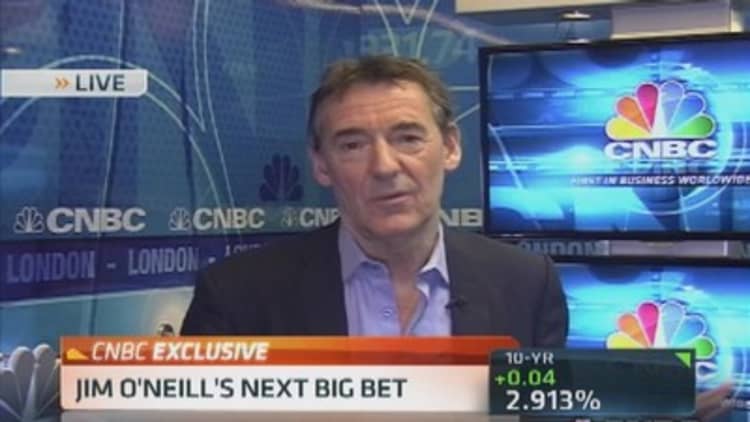
With discussion of income inequality reaching a fever pitch—from New York City Mayor Bill de Blasio's "tale of two cities" message to the headline-grabbing sermons of Pope Francis—former Goldman Sachs asset management chairman Jim O'Neill believes the global economy could be at a tipping point.
"I wonder if we could be in the very early stages of a redistribution of wealth from capital back to mass income through government policies, whether it be from taxes or things being done to boost minimum wages," O'Neill told CNBC's "Squawk on the Street" on Wednesday. "But obviously this is something else just as human beings, nevermind investors, that we all have to watch closely."
(Read more: Dems' 2014 weapon? A divide between rich and poor)
Citing class tensions in Chile, where income inequality runs rampant and has spurred heavy tax reform proposals, O'Neill said talk of wealth concentrating among the world's elite has become "de rigueur" in the United Kingdom. Most people haven't seen their incomes rise in tandem with surging stock markets, he said.
"The elitist part of the world is still benefiting," O'Neill told CNBC.
(Read more: )
O'Neill's comments come as income inequality becomes a hot-button issue across the globe. U.S. lawmakers are debating whether to raise the federal minimum wage; an unsuccessful measure to cap CEO pay in Switzerland made headlines last year; and Pope Francis has gained popularity by sharply criticizing "trickle-down" economics.
(Read more: Pope's sharp words make a wealthy donor hesitate)
Aside from the gap between rich and poor, O'Neill told CNBC that investors should watch rising interest rates and bond yields, and expect the U.S.to continue moving toward energy independence, causing it to drive less global growth. A perennial fear of central banks becoming less generous should also affect markets, he said.
"The U.S. is not going to be the same driver for the rest of the world," O'Neill said. "Because it's not soaking in anything quite like the same degree of [oil] imports that it once did."
(Read more: Minimum wage windfall? States test the idea)
—By CNBC's Jeff Morganteen. Follow him on Twitter at @jmorganteen and get the latest stories from "Squawk on the Street." Reuters contributed to this report.


